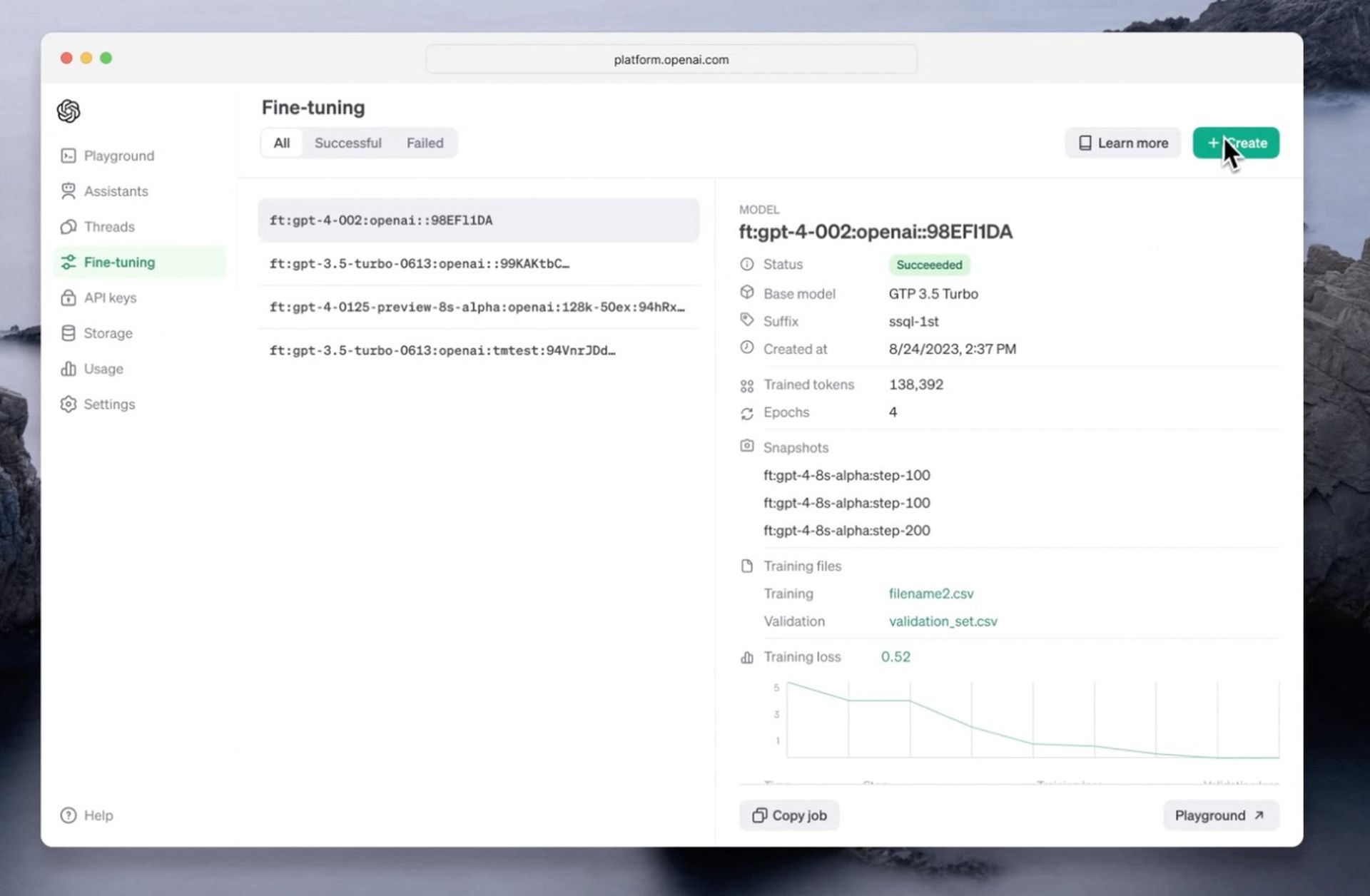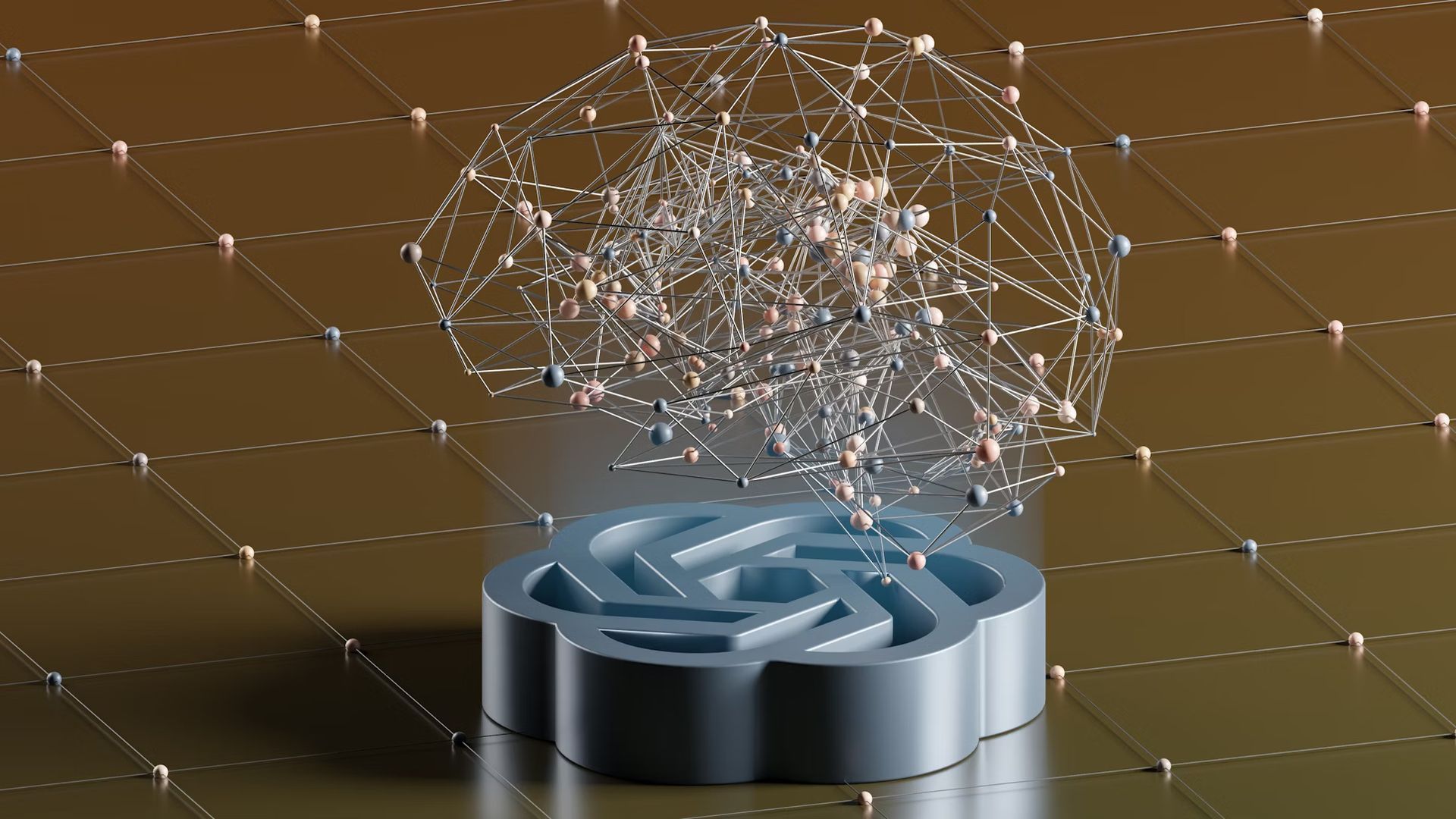In a major step toward creating more tailored artificial intelligence solutions, OpenAI recently unveiled significant upgrades to its fine-tuning API, in addition to broadening its custom models initiative. This development promises to provide developers with unparalleled capability in refining AI models, as well as introducing fresh opportunities for creating bespoke models designed to meet distinct business requirements.
We believe that in the future, the vast majority of organizations will develop customized models that are personalized to their industry, business, or use case. With a variety of techniques available to build a custom model, organizations of all sizes can develop personalized models to realize more meaningful, specific impact from their AI implementations. The key is to clearly scope the use case, design and implement evaluation systems, choose the right techniques, and be prepared to iterate over time for the model to reach optimal performance.
-OpenAI
Since its introduction in August 2023, the GPT-3.5 fine-tuning API has revolutionized the way organizations tailor AI models for unique applications. Enhancing a model’s grasp on specific subjects, this approach not only enriches its knowledge base but also sharpens its proficiency in specialized tasks. The impact is evident in the multitude of success stories, with thousands of organizations optimizing over hundreds of thousands of models across diverse fields, including enhancing programming languages and crafting personalized content.

The recent enhancements to the API introduce epoch-based checkpoints, reducing the frequency of retraining and lowering the chances of overfitting. Furthermore, an innovative comparative Playground UI now allows for direct comparisons of model outputs, thereby improving the development workflow with valuable human feedback. These advancements, combined with the beginning of third-party collaborations starting with Weights and Biases, and detailed validation metrics, signify a substantial advancement in the capabilities of fine-tuning technology.
Custom Models Program is getting expanded
OpenAI’s announcement doesn’t stop with the fine-tuning API. The company is also expanding its Custom Model program, which now includes assisted fine-tuning and the development of fully custom-trained models.
This expansion is particularly geared towards organizations with specialized needs that standard AI models cannot meet.
Assisted fine-tuning represents a collaborative effort between OpenAI’s technical teams and organizations, aiming to maximize model performance through advanced techniques and bespoke parameters.
On the other hand, the fully custom-trained models are designed for organizations with unique, complex needs that require building a model from the ground up. An example of such innovation is Harvey, an AI tool for attorneys, which partnered with OpenAI to develop a custom model that significantly enhances the accuracy and reliability of legal case law analysis.
OpenAI used YouTube videos to train AI, report claims
The future outlook
OpenAI’s updates extend beyond the fine-tuning API, venturing into the expansion of its Custom Model initiative. This now includes options for assisted fine-tuning and the creation of entirely custom-trained models, catering specifically to the unique demands of organizations that conventional AI models fail to satisfy.
Assisted fine-tuning is a synergistic endeavor, where OpenAI’s technical experts collaborate with organizations to elevate model performance using sophisticated techniques and customized settings. Conversely, the development of fully custom-trained models addresses the needs of organizations with distinctive and intricate requirements, necessitating the construction of a model from scratch. A notable instance of this innovation is Harvey, a pioneering AI assistant for legal professionals, which collaborated with OpenAI to craft a bespoke model that dramatically improves the precision and dependability of legal case law analysis.

How to explore new features?
OpenAI invites those interested in its latest features to explore the fine-tuning API’s documentation. Organizations eager to advance their AI projects can find further information on tailoring custom models and partnership prospects. With artificial intelligence’s growing presence across various fields, OpenAI’s newest enhancements usher in an era marked by unparalleled customization and efficiency in AI technologies, promising substantial gains for enterprises and software developers.
Featured image credit: Jonathan Kemper/Unsplash





